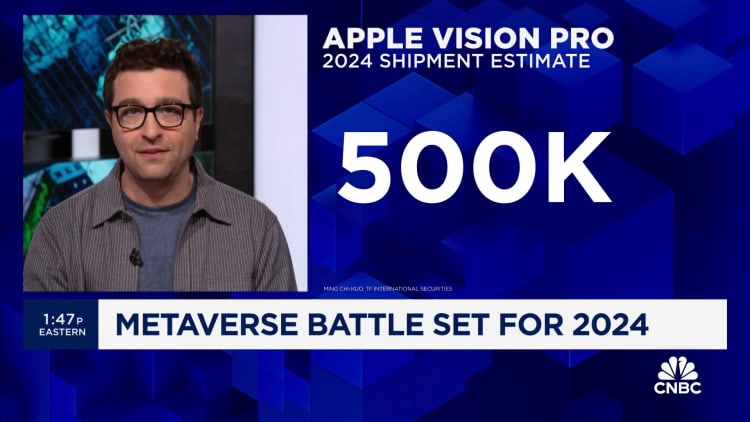BEIJING — Chinese augmented reality glasses and software company Rokid this week announced it raised 500 million yuan ($70 million) in a funding round led by the government of Hefei city.
Hefei, which has also backed electric car startup Nio, is a hub for autos and semiconductor manufacturing near Shanghai.
Augmented reality (AR) technology allows digital images to be imposed over the real world. Apple's Vision Pro virtual reality headset, set for release on Feb. 2, also allows users to see the real world using what the company calls "spatial computing" technology.
Rokid sells AR glasses for consumers. But its deal with Hefei will focus on using AR for factories, Rokid founder and CEO Misa Zhu told CNBC in a phone interview Wednesday.
AR glasses can help with equipment safety checks, while reducing the time workers need to spend on training, he said, claiming Rokid already has more than 60% market share in industries such as energy in China.

Zhu said that since businesses care more about the product's capabilities than the price, it allows Rokid to test new AR technology with industrial customers before finding ways to lower its cost and roll it out to consumers.
Rokid's cooperation agreement with Hefei city will establish an "industrial metaverse headquarters, an ecosystem center and a research and development center," local state media said in Chinese, translated by CNBC.
While companies have diversified their supply chains away from China due to geopolitics and labor costs, Beijing has said it wants to build up domestic capabilities in advanced manufacturing.
Rokid said it plans to make more tech announcements in the coming weeks. The company also expects significant potential from the incorporation of artificial intelligence.
"AI plus AR is going to changes people's lives in the next five to 10 years," Zhu told CNBC in Mandarin. "AI will help you to better gather and organize data, and [AR] can be used to display it more naturally."


